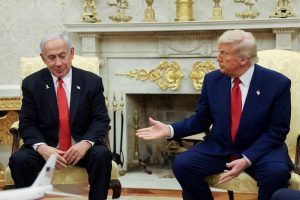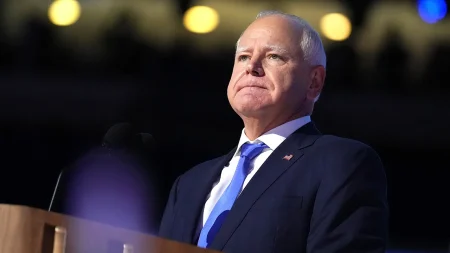Hamas Assassination Attempt in Doha Threatens to Reshape Middle East’s Geopolitical Landscape
Regional Stability Hangs in Balance After Audacious Operation Targeting Hamas Leadership
In a development that has sent shockwaves through diplomatic corridors across the globe, an audacious attempt to eliminate senior Hamas political leaders in Doha has threatened to upend decades of carefully calibrated regional alliances and potentially destabilize the American-led security architecture in the Middle East. The operation, unprecedented in its boldness and geopolitical implications, has forced a rapid reassessment of diplomatic relationships and security arrangements that have underpinned relative stability in one of the world’s most volatile regions.
The targeting of Hamas’s political leadership in Qatar—a country that has positioned itself as both a U.S. ally hosting America’s largest military base in the region and a diplomatic interlocutor maintaining channels with groups like Hamas—represents a dramatic escalation in an already tense regional environment. Middle East security analysts note that the operation crosses previously established red lines in the unwritten rules of engagement that have governed conflicts between Israel and Palestinian factions. “This isn’t just another tactical strike in an ongoing conflict,” explains Dr. Sarah Abdelrahman, a regional security expert at the International Crisis Group. “By targeting political figures operating openly in a third country that maintains relationships with both the U.S. and various regional actors, we’re witnessing a potential paradigm shift in how conflicts may be conducted moving forward.”
Qatar’s Diplomatic Balancing Act Under Unprecedented Pressure
Qatar has long maintained a delicate balancing act in the Middle East’s complex political landscape, hosting Hamas’s political office while simultaneously maintaining close security ties with the United States through Al Udeid Air Base, which houses approximately 10,000 American military personnel. This dual role has allowed Qatar to position itself as an essential mediator in regional conflicts, including facilitating negotiations between Hamas and Israel during previous hostage situations and ceasefire arrangements. The assassination attempt on its soil now places extraordinary pressure on this carefully cultivated diplomatic identity.
“Qatar’s entire foreign policy strategy is predicated on being able to talk to everyone while maintaining American security guarantees,” notes Ambassador James Moriarty, former U.S. diplomat with extensive Middle East experience. “This incident forces them into an impossible position of having to respond forcefully to a violation of their sovereignty while not endangering their strategic relationship with Washington.” The Qatari government faces mounting domestic pressure to demonstrate its independence and ability to protect foreign guests on its soil, while simultaneously preserving its relationships with Western powers. Sources close to the Qatari royal family indicate that emergency meetings have been convened to formulate a response that balances these competing imperatives, with options ranging from scaling back diplomatic ties with suspected perpetrators to seeking international condemnation through multilateral institutions.
U.S. Strategic Interests at a Critical Juncture
For the United States, the assassination attempt creates a profound diplomatic conundrum that threatens to undermine its position as the principal security guarantor in the Gulf. American policymakers now face difficult questions about their ability to restrain allies and maintain regional stability—the cornerstone of U.S. Middle East policy for decades. The Biden administration has worked assiduously to prevent the Gaza conflict from metastasizing into a wider regional conflagration, but this development threatens to unravel those efforts by potentially triggering retaliatory cycles that could draw in multiple regional powers.
“What we’re witnessing is an unprecedented challenge to America’s ability to maintain its coalition of regional partners who often have conflicting interests,” explains Dr. Robert Malley, former U.S. Special Envoy to the Middle East. “Washington now faces the unenviable task of reassuring Qatar about its security commitments while simultaneously addressing concerns from other regional allies about the sanctity of their own security arrangements.” Administration officials, speaking on condition of anonymity due to the sensitivity of the matter, acknowledge that emergency diplomatic efforts are underway to contain potential fallout, with high-level communications between Washington, Doha, and other regional capitals occurring around the clock. These sources indicate that the State Department has activated crisis response teams to manage the diplomatic repercussions, while intelligence agencies reassess the potential for retaliatory actions that could further destabilize the region.
Hamas’s Evolution and the Changing Nature of Conflict
The targeting of Hamas’s political leadership in Doha also raises profound questions about the future of the organization and its dual identity as both a militant group and a political entity with international diplomatic representation. Since establishing its political office in Qatar in 2012, Hamas has sought international legitimacy by distinguishing between its military and political wings—a distinction that appears increasingly tenuous in light of recent events. The group now faces critical strategic decisions about its organizational structure, security protocols, and diplomatic approach that could fundamentally reshape its role in Palestinian politics and regional dynamics.
“Hamas is at an inflection point that will determine whether it can maintain its political presence on the international stage or if it will be forced to retrench into a purely militant posture,” observes Dr. Ibrahim Al-Marashi, professor of Middle Eastern history at California State University. “The targeting of its political leadership outside of Gaza represents a fundamental challenge to the organization’s attempt to maintain separated military and political tracks.” Sources within Palestinian political circles suggest internal debates are intensifying about the viability of maintaining an external political presence, with some factions advocating for a complete withdrawal from public diplomatic engagement. How Hamas responds to this crisis will have significant implications not only for Palestinian politics but also for the broader question of how non-state actors engage with the international system in conflict zones worldwide.
Redrawing Regional Alliances in an Era of Strategic Uncertainty
Perhaps the most profound long-term consequence of the assassination attempt may be its acceleration of already shifting regional alliances and security arrangements. The Middle East has witnessed remarkable diplomatic realignments in recent years, from the Abraham Accords normalizing relations between Israel and several Arab states to tentative rapprochements between longtime adversaries Saudi Arabia and Iran. The targeting of Hamas leadership in a country that maintains relationships across these divides threatens to force regional actors into choosing sides more definitively, potentially undermining nascent diplomatic initiatives aimed at reducing regional tensions.
“We’re witnessing the potential collapse of the strategic ambiguity that has allowed many regional players to maintain relationships across traditional dividing lines,” argues Dr. Vali Nasr, former Dean of Johns Hopkins School of Advanced International Studies. “When political violence extends beyond established conflict zones into third countries, it creates enormous pressure on those nations to abandon their balancing strategies and align more clearly with one camp or another.” The ripple effects are already apparent in diplomatic circles, with several Gulf states reportedly reassessing their security arrangements and exploring new defensive pacts that may operate independently of American security guarantees. Meanwhile, Iran and its allied groups across the region have seized upon the incident to argue that American security promises lack credibility, potentially accelerating Tehran’s efforts to expand its influence among previously non-aligned actors. As the dust settles on this extraordinary breach of diplomatic norms, one thing remains clear: the American-led security architecture that has defined the Middle East for generations faces perhaps its most serious challenge yet, with profound implications for regional stability, international norms regarding political violence, and the future of great power competition in this strategically vital region.








